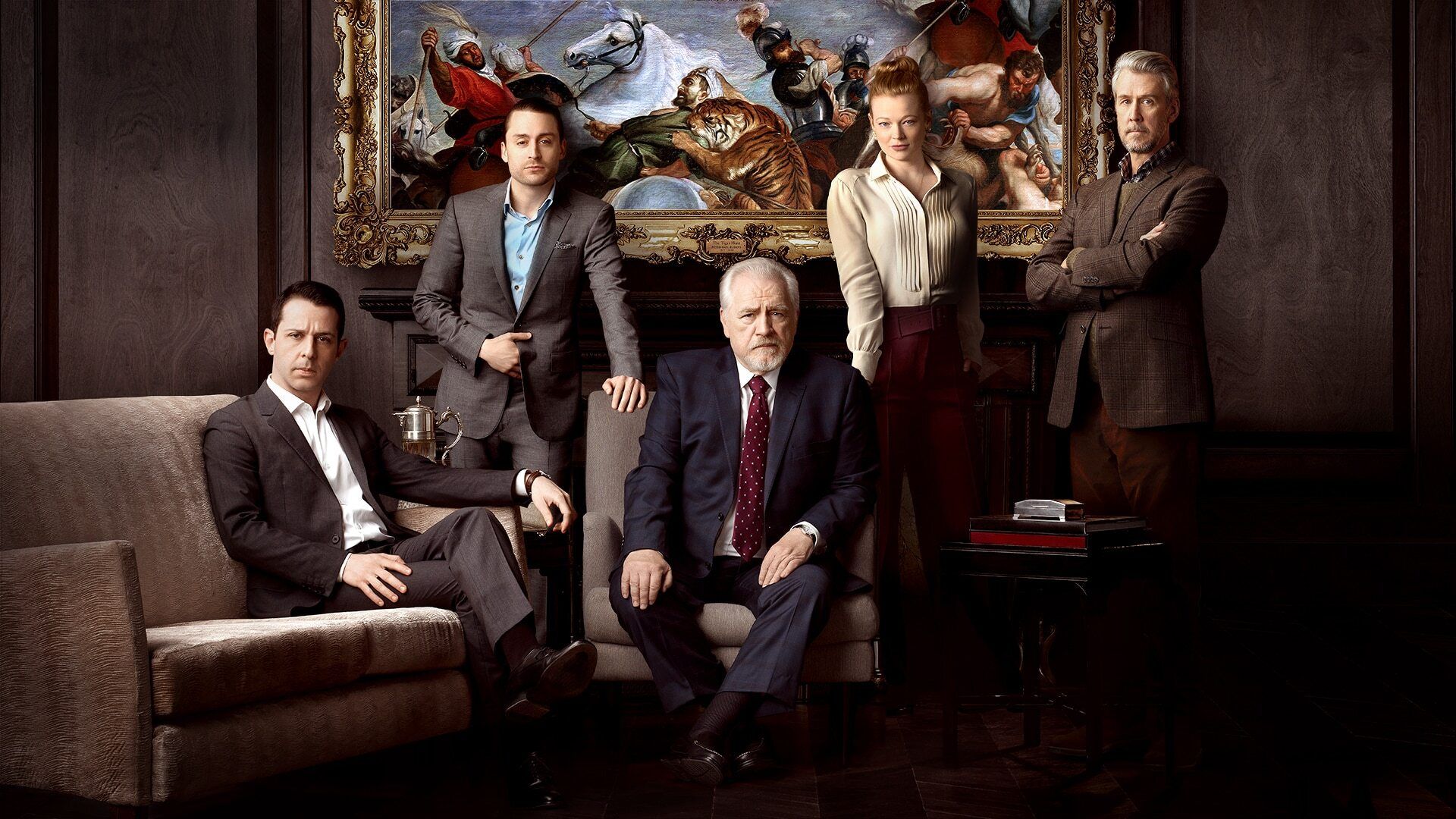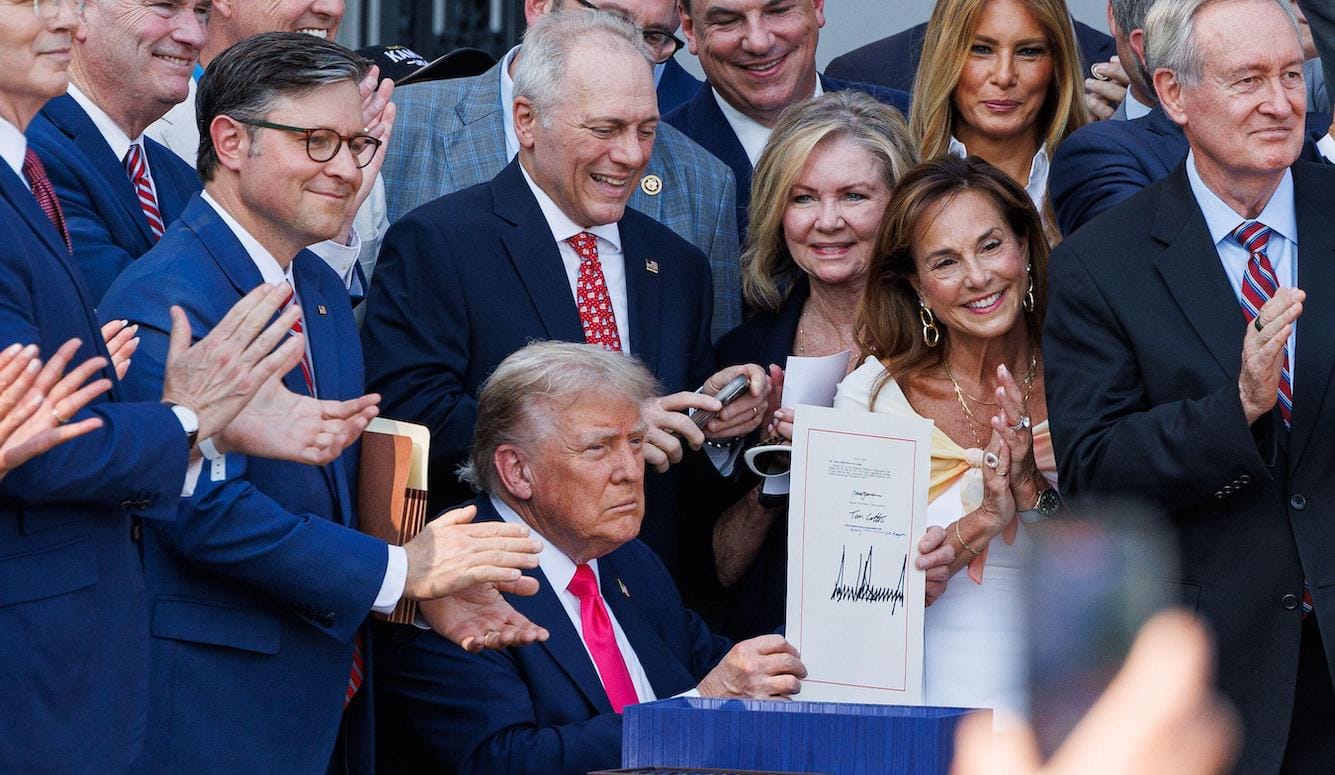Television
“Not Necessarily Nice Things” Uncomfortable Truths in Succession
We live in a world where the super-rich are often miserable. Part of the reason for this is that the heirs and heiresses to enormous fortunes amassed by their parents sometimes do very little with their own lives.

Editor's note: the following essay contains plot spoilers
Succession is the best show on television, and its most recent round of awards is well deserved. On January 10th, the show snagged a Golden Globe for Best Drama, while Sarah Snook and Jeremy Strong were honored as Best Actor and Best Actress in a Television Series. Scripted around the patriarch of a family business (Logan Roy) and his four children—Kendall, Roman, Siobhan, and Connor, the show focuses on the never-ending power struggles of the siblings.
Succession is both biblical and Shakespearean in its themes. In fact, Brian Cox, who portrays Logan, worked at length with the Royal Shakespeare Company and with the Royal National Theater. He even wrote a book, The Lear Diaries about his experience playing the eponymous king.
Succession exposes the aspects of our nature that we would prefer remained hidden. In a world saturated with clichéd hero narratives and feel-good bromides, showrunner Jesse Armstrong makes us feel bad. He doesn’t equivocate, and he doesn’t apologize. He steers into the skid and deals with fundamental truths about people and about the world, and therein lies the appeal.
Towards the end of season three, Logan describes his role as chairman of Waystar Royco to his son, Kendall. “I’m a great revolutionary. A bit of spice, a bit of fun, a bit of truth. I fuckin’ know things about the world, or I wouldn’t turn a buck. Not necessarily nice things.” This analysis dissects four of those uncomfortable truths, none of which are particularly "nice things."
Nothing in life is free
“Uneasy is the head that wears a crown,” observed King Henry in Shakespeare’s Henry IV. This used to be common knowledge—that success requires hard work. To get one thing, you have to give up another. Succession coldly reminds us that ascension comes at a price.
In the season two finale, Logan decides that Kendall should assume blame for company crimes of which he is innocent to appease shareholders demanding answers, United States senators in front of whom the Roys had previously testified, and the Department of Justice whose appetite for prosecution had grown strong. The crimes in question involved the alleged sexual abuse, misconduct towards, and murder of young women, migrant workers, and vulnerable staff members as well as associated coverups, payoffs, and settlements. Largely uninterested in the relative morality of this, Logan decides that sacrificing Kendall is the most appropriate course of action. He is aware that this will likely mean jail time for his son, but he does not care. In his eyes, the wrongfully sullied reputation and incarceration of Kendall is the price of holding together his empire. Bearing this in mind, Kendall inquires earnestly of Logan whether his father ever seriously considered handing over the reins of the company to him. To this Logan replies: “You’re not a killer. You have to be a killer.”
Inspired by his father’s words, Kendall attempts to show his father that he is, in fact, a ruthless, stone-cold killer by announcing suddenly at the press conference during which he was ostensibly to assume blame for the aforementioned crimes that, in fact, his father (not he) bears the lion’s share of responsibility for the crimes and coverups. Proud of his son’s finally becoming “a killer,” Logan sports a “that’s my boy” smile and later refers to Kendall’s actions both as a “play” and a “move.”
This theme repeats itself in season three. After Kendall unsuccessfully attempts to assign blame to his father, husband of Siobhan Roy (Logan’s daughter) Tom Wambsgans offers himself up to Logan as a blood sacrifice to appease the shareholders, senators, and the Department of Justice. Tom then spends the rest of the season working with a prison consultant who helps him prepare to go to jail. The Roys even begin referring to Tom as “The Christmas Tree,” a crude reference to the fact that he is a figurehead on whom they plan to hang crimes like ornaments, absolving themselves legally by wrongfully transferring blame onto him. This is example number one of Tom’s sacrificing greatly in order to ingratiate himself into Logan’s good graces.
Example number two comes in the season three finale when Tom actively sabotages his wife and her two brothers Kendall and Roman, who have been plotting against Logan. He knows that his betrayal will likely cost him his marriage, but that is a price with which he can live, proving to Logan that he too is a “killer” who is willing to do whatever it takes to protect Logan’s interests, even at a great personal cost to himself.
To be clear, none of this is to suggest that ruthlessness is virtuous or that the literal or metaphorical killing of others are good things. Succession thrives on hyperbole. Everything in the show is completely over the top and exaggerated. There is unquestionable truth to the emphasis that the show places on sacrifice, however. In order to make top marks at university, you have to sacrifice a bit of your social life. In order to build a business from scratch, you have to give up the security and comfort of a company job and take on high levels of risk. Examples abound. The characters in Succession have bad values and often prioritize power, money, and personal gain above family, decency, and democracy, but the message that the show illustrates is potent: nothing in life is free.
All speech is acceptable speech
Evelyn Beatrice Hall once succinctly summarized the philosophy of Voltaire with the phrase: “I disapprove of what you say, but I will defend to the death your right to say it.” In many ways, that’s what Succession demonstrates. Poking fun at wokeism, political correctness, and Orwellian speech codes, the show is rich in obscenity, vulgarity, and crass verbiage.
On the subject of his Fox News-like network, Logan explains to Kendall and Roman that “People come to us because we don’t sell them on anything. No packet of fucking bleeding heart, United Nations, Volvo, gender bender horseshit.” Upon walking out of a business meeting, Logan cynically quips to Kendall that “He’s selling me something I want at a fair price? What’s next, felatio?”
Upon his brother’s rebuking the idea of bringing a work subordinate as his date to a charity gala, Roman mocks him. “Oh, come on. What a pathetic beta-cuck. Umm, excuse me, would it be cool because I have something very secret in my pants. Would it be okay to show, please? Or is that a trigger warning?” He also describes Indonesia as a country that “sounds like a medical condition” and wryly notes that “People like me. I look like a matador, and everyone wants to fuck me.” While embracing her brother, Siobhan playfully asks “what is that, "Date Rape" by Calvin Klein” (referring to his cologne). To this, Roman responds with “you wish,” adding incest, for the hell of it, to a joke about sexual coercion that was already in extremely poor taste.
While talking with Greg (Logan’s great-nephew), Tom chides him for discussing ethics in the workplace. “Greg, this is not fucking Charles Dickens world, okay? You don’t go around talking about principles. Man the fuck up!” On a family retreat in Hungary, Tom exclaims: “Europe! A Nice Bit Of War-Torn, Spooky, Anti-Semitic, Vampire-Y, Authoritarian Europe.” At a political conference, Tom tells Greg that they are in “a nice safe space where you don’t have to pretend to like Hamilton.” Later on, he states that “I’ve got a dick the size of a Red Sequoia, and I fuck like a bullet train” while describing why Siobhan chose to be with him.
Once again, this is not an endorsement of what the characters are saying, most of which is indefensible. By including these distasteful epithets which elicit quite a bit about the characters who speak them, Succession reminds us that all speech is acceptable—even and most especially speech that most of us would probably find objectionable.
The world is not binary
Talking with FBI Agent Richie Dimaso in David O. Russell’s American Hustle, conman Irving Rosenfeld notes that “that’s the way the world works. Not black and white, like you say. Extremely grey.” Succession drives home this idea—the notion that, like Demi Lovato, the world is not binary.
Of all the casualties that this round of America’s culture wars have produced, perhaps the most lamentable has been the death of nuance. These days, we’re asked to pick sides, teams, and tribes and to toe the party line or risk getting branded as a member of the enemy group. One might believe this reductionist thinking is exclusively a product of the Left, but the American Right is just as guilty. The ostracization, demotion, and abandonment of Liz Cheney—who was recently ousted as Chair of the House Republican Conference is a recent example. So are the multiple times Trump has been booed by his own supporters when talking about vaccines.
The increasingly popular appeal of categorical imperatives and of tribalism ultimately poisons discourse in America. It is easy to believe that there is simply good and evil, black and white, Democrat and Republican, and nothing in between. Something is right, or it is not, and that’s the end of it. This line of thinking is reductive, childish, and cheap. But it’s ubiquitous.
On the one hand, we despise Kendall, Roman, and Shiv because they are slimy, ruthless Machiavellian operators at their worst, and fiendish oafs at their best, leaving carnage in their wake wherever they go. On the other hand, we feel bad that they are constantly lied to, manipulated, and abused, emotionally and physically, by their father. We resent Logan for the abuse he hurls at his children and employees, but in season one, we learn that Logan himself was badly abused in his younger years. We despise Shiv for cheating on Tom but recall that Tom cheated on her at his bachelor party. Succession is a masterclass in nuance and in showing us that there are two sides to every story.
The Joke is on Us
We live in a world where the super-rich are often miserable. Part of the reason for this is that the heirs and heiresses to enormous fortunes amassed by their parents sometimes do very little with their own lives. In Succession, Roman and Kendall both consistently prove to be useless businessmen undeserving of their c-suite titles. Siobhan, while shrewd, cares about nobody and nothing other than her own self-advancement. Connor does not work at all.
Young Americans today are obsessed with becoming rich and famous. A 2019 study found that 86 percent of them want to become social media influencers. Meanwhile, crypto bros, ForeX gurus, and NFT flippers continue to grow in number. Many care more about the product (wealth and celebrity) than the process (putting in the hard yards and mastering something). These people are no different than Shiv, Connor, Roman, and Kendall. And yet, we’re all guilty of aspiring towards the devil-may-care delight of instantaneous, unearned fame and riches. Who hasn’t fantasized about living as the characters do? Many of us know they’re miserable and yet want what they have anyway. Perhaps the joke is on us.





